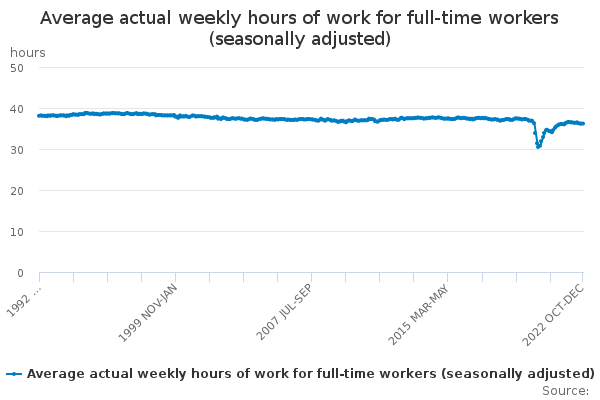
Signs of a toxic work environment: The expectations to ‘Overwork’.
In this article, we explore a key element that contributes to creating a toxic work environment and the impact of that element upon its employees.
We are going to explore the cultural expectation to ‘overwork’.
As a company that works within the disability sector, all of us at Aventido are aware of the emotional and physical challenges that can occur for individuals within the workplace who experience any type of disability and how working long hours can be the norm for someone working with a disability.

The UK Government uses the following definition for the word ‘Disability’:
You're disabled under the Equality Act 2010 if you have a physical or mental impairment that has a 'substantial' and 'long-term' negative effect on your ability to do normal daily activities.
Definition of disability under equality act 2010
It doesn’t refer to specific physical or mental conditions by name, but the definition does focus on the impact of a disability upon an individual's day-to-day ability to carry out ‘normal’ activities.
In many cases, an employee with a disability, may not actually have an outward sign hinting at their disability because the disability could be related to mental or cognitive difficulties rather than the physical.
The dangers of being exposed to long working hours as represented by the World Health Organization (WHO) and the International Labour Organization (ILO).
In September 2021, the WHO and ILO released their report entitled “Global, regional, and national burdens of ischemic heart disease and stroke attributable to exposure to long working hours for 194 countries, 2000–2016: A systematic analysis from the WHO/ILO Joint Estimates of the Work-related Burden of Disease and Injury”.
The report explored the relationship between heart disease and stroke and exposure to long working hours. The report’s key findings were:
-
Globally in 2016, 488m people were being exposed to working weeks of greater than 55 hours.
-
The WHO and ILO, could link 745,194 deaths to the practice of overworking equivalent to 4.9% of all deaths.
The WHO and ILO concluded:
Protecting and promoting occupational and workers’ safety and health requires interventions to reduce hazardous long working hours.
Thankfully, here in the UK, the Office of National Statistics reports that over the period of March 1992 to October 2022, the average number of hours that workers work within a week is around 38 hours per week well under the 55 hours per week that the report from the WHO and ILO claimed as excessive working hours.
Neurodiverse employees are more likely to be exposed to longer working weeks.
According to the leading experts in Neurodiversity and the workplace, Genius Within, many people who experience neurodiversity e.g Autism, ADHD/ADD, Dyslexia, and many more, often find challenges with the following:
- Time Management,
- Planning and prioritising,
- Organisation,
- Getting distracted by background noise,
- Working memory weaknesses i.e. the ability to hold multiple things in one’s attention at the same time,
- Processing speed i.e. the ability to focus attention and visually scan and sequence information
Many of these individuals will have developed strategies to cope with day-to-day activities throughout their education years. The British Dyslexia Association estimates that 80% of young people with dyslexia leave education without any diagnosis or support in order to unlock their potential. It is estimated that 10% of our population experiences dyslexia with 4% severely so.
As such it is not unreasonable to assume that some of these challenges will affect productivity for a significant percentage of the workforce if they do not get the support that they need in order to be able to work at their best within their work environment.
Many people with neurodiversity will work extra hours in order to ‘catch up’ due to being hindered by some of these challenges during the day. Partly this will be due to the individuals not declaring their neurodiversity and thus not asking for support, but equally, if the culture of the organisation encourages working long hours, then there is a potential for neurodiverse employees to experience high levels of anxiety and stress in the short term and in the longer term more significant health issues such as burnout.
Tips for building a more positive work environment.
1. Become a more disability-aware organisation from the top down.
-
a. Seek to invest in disability awareness training for the management team and the workforce.
-
b. Ask employees who have indicated a disability what would help them in the workplace.
2. Change the culture of expectation that indicates that working longer hours makes one a ‘better employee’
3. As a management team seek to help employees to work in roles that play to their strengths rather than their weaknesses.
4. Seek to provide resources that aid employees with disabilities to work at their best e.g:
-
a. consider the provision of assistive technology as a part of the company IT strategy for all employees to use,
-
b. encourage applications to the UK Government’s Access To Work Scheme that works to implement ‘reasonable adjustments’ within the workplace to support unlocking the potential of the employee experiencing a disability.
Final Words
Here at Aventido, the team sees on a daily basis the transformational impact of assistive technology in the lives of individuals in many different workplace and educational environments.
If you would like to know more about this transformational impact that improves productivity from the workforce then please click the banner below and one of our team will arrange to meet with you to discuss your thoughts and any questions that you may have.
Average Actual Weekly Hours of Work Source - https://www.ons.gov.uk/employmentandlabourmarket/peopleinwork/earningsandworkinghours/timeseries/ybuy/lms